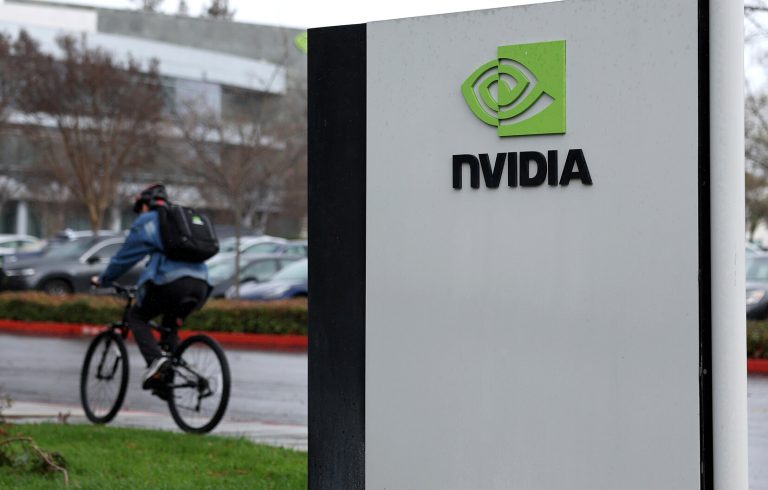Jensen Huang, the CEO and cofounder of the $2.2 trillion chip manufacturer Nvidia, believes that meaningful, enduring success only comes as a result of two simple ingredients: “Pain and suffering.”
That’s a phrase he’s turned into a sort of mantra inside Nvidia, the dominant global supplier of what’s perhaps the hottest commodity in tech at the moment — artificial intelligence chips, demand for which has outstripped supply and helped propel Nvidia’s market cap to within striking distance of Apple’s. In fact, when Huang takes the stage at San Jose’s SAP Center on Monday to keynote NVIDIA’s annual GTC 2024 conference, he will arguably do so as the AI industry’s most valuable player right now.
Companies like Google and Meta have certainly produced AI chips, but Huang’s Nvidia accounts today for more than 70 percent of chip sales — and, according to the research firm Omdia, his company also is at the vanguard of training generative AI models. Nvidia’s chips perform the increasingly dazzling tasks executed by chatbots like ChatGPT, including everything from text-generation to facial and speech recognition.

“Customers will wait 18 months to buy an Nvidia system rather than buy an available, off-the-shelf chip from either a start-up or another competitor,” Daniel Newman, an analyst at Futurum Group, said in an interview with The New York Times. “It’s incredible.”
In spite of all that, though, ask the average man on the street to identify Nvidia’s chief executive and you’re likely to come up short. Outside of tech circles, Huang’s not as much of a household name as the CEOs of companies like Apple and OpenAI — yet his influence is just as far-reaching. Moreover, he’s risen to the top job at a company that’s now a linchpin of the AI industry thanks to a scrappy resilience that he told Stanford University students last week was an indispensable ingredient for career success.
Here are a few key facts to know about the executive who co-founded Nvidia in 1993 and who today is worth an estimated $77.6 billion, according to Bloomberg.
Three years after its launch, Nvidia nearly went out of business
By 1996, Nvidia was already on the precipice with an unclear future. It was struggling to compete with other chipmakers, was in fact facing collapse, and endured layoffs of more than half the staff.
Huang would later recall of those early days that the struggle forced him to become more attuned to market shifts and consumer demand. It led Nvidia to scrap its existing technology and go all-in on a new chip model that proved to be a success. “Greatness is not intelligence,” he said last week in his talk at the Stanford Institute for Economic Policy Research.
“Greatness comes from character. And character isn’t formed out of smart people, it’s formed out of people who suffered.”
Huang was bullied relentlessly as a student
Huang came by his resilience early. He told The New Yorker about how he faced anti-Asian slurs (Huang was born in Taiwan) as well as bullying from other students when he attended a boarding school in Kentucky. “Back then,” he told the magazine, “there wasn’t a counselor to talk to. Back then, you just had to toughen up and move on.”
The future billionaire carried that ethic into his first minimum-wage jobs, which included working as a dishwasher at Denny’s, and also as a toilet-cleaner.
At Nvidia, he lives by a philosophy of pain and ‘low expectations’
All of the above helps explain why Huang told the Stanford students days ago that success can only be forged in the crucible of “pain and suffering,” and that his outlook on life generally consists of “low expectations.”
He calls that last part, in fact, one of his great advantages, contrasted against graduates of a university like Stanford who can’t often help but confront with the world with high expectations. Such people, he said in his remarks to the students, generally “have very low resilience” that doesn’t prepare for the prospect of failure. “Unfortunately, resilience matters in success,” he said.
“I don’t know how to teach it to you except for I hope suffering happens to you.”








